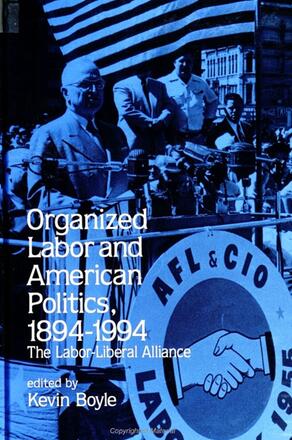
Organized Labor and American Politics, 1894-1994
The Labor-Liberal Alliance
Alternative formats available from:
Traces the rise and fall of organized labor's political power over the course of the twentieth century.
Description
Organized Labor and American Politics, 1894-1994 traces the rise and fall of labor's power over the course of the twentieth century. It does so through provocative and engaging essays written by distinguished scholars of the modern labor movement. The essays focus on different times and places, from turn-of-the-century steel mills to the streets of 1930s Detroit to the halls of Congress in the 1990s. Drawing on a broad range of primary sources, the authors adopt a variety of approaches, from broad syntheses to careful case studies. Altogether, the essays tell a single story, of workers struggling to find a voice for themselves and their unions within the nation they helped to build. It is a story of victories won and of defeats endured.
Kevin Boyle is Associate Professor of History, University of Massachusetts, Amherst. His previous books include The UAW and the Heyday of American Liberalism, 1945-1968 and (with Victoria Getis) Muddy Boots and Ragged Aprons: Images of Working Class Detroit, 1900-1930.
Reviews
"Boyle has assembled an excellent collection of essays. Organized Labor and American Politics is a timely subject, the methodology is sophisticated, and the research is impressive. The editor has written an insightful and synthetic introduction which ties it all together quite well. " — Nelson Lichtenstein, University of Virginia
"This book arrives at a moment of transition and considerable contemporary speculation about the future of labor politics in America. The contributors highlight and diagnose two dramatically different periods of political history: first the rise of labor influence within the Labor-Liberal Alliance (a situation forecast by Progressive Era coalitions and consummated in the New Deal Era); second the post-war operation of the 'alliance' and particularly its inherent limits and decline. Uncommonly concise and well written. " — Leon Fink, The University of North Carolina at Chapel Hill